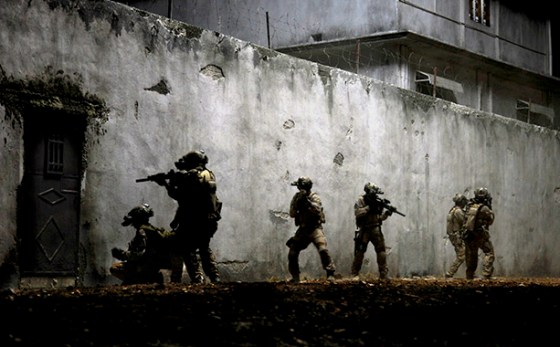OK, so we have another mass shooting in a school, and this one may be a record-breaker, in the K-12 category. Twenty children dead, several adults.
We’ve had the obligatory statement from the president. There’s no reason for the president of the United States to comment on such things, as it has nothing whatsoever to do with his job description. After the Columbine shootings, I wrote about the absurdity of reporters standing outside the White House for hours waiting for the president to say something. But it’s expected now. People don’t think about what the president’s job is and isn’t; he’s expected to be emoter in chief.
So he said something, and he shed tears. He might as well. I mean, what do we expect him to do? He indicated his intention to do something:
President Obama, in one of his most emotional speeches as president, wiped away tears as he spoke about the shooting from the White House’s briefing room. “Our hearts are broken today,” Obama said. He promised “meaningful action to prevent more tragedies like this,” but did not say specifically what he might do….
What would he do, indeed?
I don’t normally post about stuff like this because there’s really nothing helpful to say. These things fill me with hopelessness. The only thing that would do anything to prevent such events in the future would be a level of gun control that would mean changing unshakable reality in this country by 180 degrees.
Understand me — I’m not proposing anything, because I don’t know of anything that would both solve the problem and also be achievable.
Here’s why it’s so hopeless: Even if, by some miracle, we bypassed or reinterpreted the Second Amendment so as to allow for the strictest laws in the world regarding gun ownership, we still would not have solved anything. Which is why you don’t see me going around advocating gun control.
That’s because the guns would still exist. And the gun-rights people are right: If you outlaw guns, outlaws will still have guns. The problem is that there are just so many firearms out there in this country. Even in the most repressive, worst jackbooted nightmare for the gun rights people, with police rounding up all the guns they can lay their hands on, there would still be so many left that you would see incidents such as this school shooting still happening from time to time.
It’s an economic problem — too many guns chasing too many potential shooting victims. There are at least a couple of hundred million guns in the country — I’ve seen statistics suggesting there are 90 for every 100 people. And of households that have one firearm, more than 60 percent have multiple guns.
You know what this situation reminds me of? Slavery before 1860, and why it was such an intractable problem for the country. No, gun lovers, I’m not saying it’s the moral equivalent or anything like that. I’m saying the dynamics of the political challenge are similar.
There were about 4 million slaves in the country when South Carolina seceded. Here in SC, there were more slaves than free people. Slaveholders were so invested in the institution that there was no possible political or legal solution that would have induced them to give up their slaves. The position of white elites in this and other states (but most especially this one; SC had always been the most extreme on the issue) was essentially that you’d have to pry their slaves from their cold, dead hands. And that’s what happened. It took a war that killed more Americans than ALL of our other wars, from the Revolution through Iraq and Afghanistan, combined, to end slavery. And we’re still wrestling over the repercussions.
For Barack Obama, if he wanted to address the gun issue meaningfully, the political obstacles are very similar to those that faced Lincoln dealing with slavery. Lincoln had to spend the early months of his administration, the early months of the war, insisting to the world that he was NOT the abolitionist that the Southerners depicted him as. It’s not that he was pro-slavery; he was always opposed to it. But even well into the war itself, he saw abolition as a political impossibility. He and others saw the fact of those 4 million slaves as something they didn’t know how to deal with. It seemed unimaginable to many anti-slavery pols then that former slaves could just co-exist with former slaveholders in the future.
Obama is to gun-rights people, in a way, what Lincoln was to the slaveholders. He didn’t run on a gun-control platform, and has never made any serious proposals to limit gun rights, that I can recall. And yet I’m going to go out on a limb here and say that there has NEVER been a president of the United States as distrusted by gun-rights people — and I mean serious gun-rights people, the sort who would list the 2nd Amendment as a top concern.
For Barack Obama to step out and advocate anything that would put a serious crimp in gun availability in this country would create a political backlash that — while it wouldn’t be the same as secession (and the reaction would be more individualized than a state-by-state thing) — would probably outstrip anything sense, in terms of the sheer passion of the response.
It would be the most politically (and, frankly personally — the Secret Service would have a horrific new challenge on its hands) risky thing I’ve ever seen a president do in my adult lifetime.
Which is why I kind of doubt we’ll see it.
Which is why waiting for the president to say something about such things seems so hopelessly pointless…
Nine Republican lawmakers voted for someone other than Boehner, three of them backing his deputy, Majority Leader Eric Cantor of Virginia.










